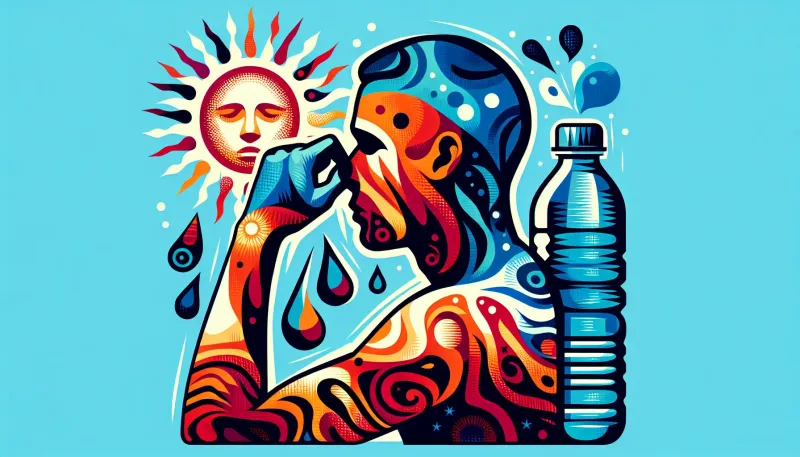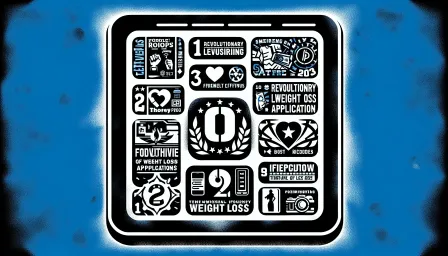Common Signs of Dehydration You Should Never Ignore

Learn about the common signs of dehydration and how to recognize them to maintain your health and wellbeing. Find out more here.
Dehydration is more than just a simple absence of water. It can lead to a wide array of health problems, ranging from mild discomfort to severe medical conditions. Recognizing the signs of dehydration early can help you take the necessary steps to rehydrate and stay healthy. This article explores the common signs of dehydration, its causes, and preventive measures.
Understanding Dehydration
Dehydration occurs when your body loses more fluids than it takes in. This can disrupt the balance of minerals (electrolytes) in your body, which affects the function of various bodily systems. Everyone is at risk of dehydration, but certain groups, such as young children, older adults, and people with chronic illnesses, are more vulnerable.
Common Signs of Dehydration
1. Thirst
The most obvious and early sign of dehydration is thirst. Your body's way of signaling that it needs more fluids helps you to remember to drink water regularly. Ignoring this signal can lead to more severe symptoms.
2. Dry Mouth and Skin
When dehydrated, you might notice a dry mouth, which often comes with a sticky feeling. Similarly, your skin may lose its elasticity and moisture, making it appear dry and less supple.
3. Fatigue and Weakness
Lack of adequate hydration can lead to decreased blood volume, causing your heart to work harder to pump blood, which increases fatigue and weakness. You may feel unusually tired even with minimal exertion.
4. Dizziness and Lightheadedness
Dehydration can cause a drop in blood pressure, leading to dizziness or lightheadedness. This symptom is particularly noticeable when you move from a sitting or lying position to standing up (orthostatic hypotension).
5. Headaches
Headaches are a common symptom of dehydration due to the reduced flow of blood and oxygen to the brain. In severe cases, dehydration can lead to migraines.
6. Dark Urine
Monitoring your urine color can be an effective way to assess your hydration status. Dark yellow or amber-colored urine is often a sign of dehydration. Ideally, your urine should be light yellow or clear.
7. Decreased Urine Output
A significant reduction in urination is a clear sign that your body is trying to conserve water. If you’re not urinating as frequently as usual, it’s time to increase your fluid intake.
8. Rapid Heartbeat and Breathing
Dehydration can cause a decrease in blood volume, leading to a faster heart rate as your body attempts to maintain adequate circulation. This can also result in rapid breathing.
9. Sunken Eyes
In severe cases, dehydration can cause noticeable changes in physical appearance, such as sunken eyes, which indicate a significant lack of fluid in the body.
10. Confusion and Irritability
Dehydration can affect mental functions, leading to confusion, irritability, and even mood swings. These symptoms indicate that the brain is not getting enough fluids to operate efficiently.
What Causes Dehydration?
Dehydration can result from a variety of factors, including:
- Inadequate Fluid Intake: Not drinking enough water daily leads to a fluid deficit.
- Excessive Sweating: Engaging in strenuous activities, especially in hot climates, increases fluid loss through sweat.
- Illness: Fever, vomiting, and diarrhea can lead to significant fluid loss, causing dehydration.
- Chronic Conditions: Diseases such as diabetes can affect fluid levels in the body.
- Medications: Certain medications, like diuretics, can increase urine output, leading to fluid loss.
- Age: Older adults often have a reduced sense of thirst, putting them at higher risk for dehydration.
Preventing Dehydration
Preventing dehydration involves taking proactive steps to ensure you’re consuming enough fluids. Here are some tips:
- Regular Hydration: Drink water throughout the day, even if you don’t feel thirsty.
- Hydrating Foods: Incorporate water-rich foods, such as fruits and vegetables, into your diet.
- Monitor Fluid Loss: Pay attention to how much you sweat, especially during exercise and hot weather, and drink accordingly.
- Avoid Alcohol and Caffeine: These substances can increase dehydration, so limit your intake.
- Use Hydration Aids: Sports drinks and oral rehydration solutions can be beneficial, especially in situations where there is significant fluid loss.
- Special Populations: Pay extra attention to the hydration needs of children, older adults, and individuals with chronic illnesses.
When to Seek Medical Attention
If you notice signs of severe dehydration, such as confusion, fainting, lack of urination, or rapid heartbeat, seek medical attention immediately. Severe dehydration can require intravenous fluids and other medical interventions.
Conclusion
Recognizing the signs of dehydration early is crucial for maintaining overall health and well-being. By staying informed about the symptoms and taking preventive measures, you can ensure that your body remains adequately hydrated. Always listen to your body and prioritize your hydration needs, especially during times of illness, heat, or strenuous activity.



























